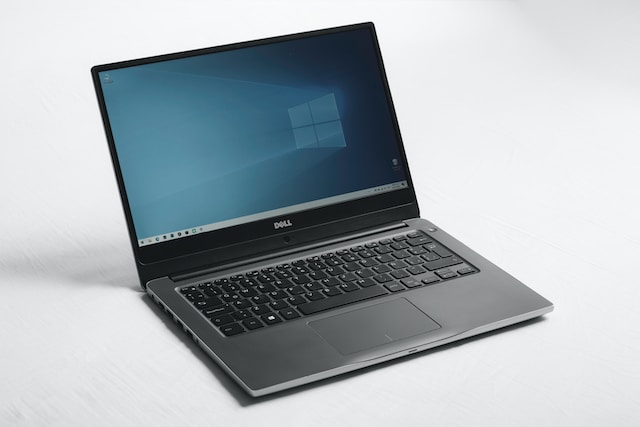Computer Turning Off Randomly: Troubleshooting Tips
Disclosure: Some of the links in this article may be affiliate links, which can provide compensation to me at no cost to you if you decide to purchase a paid plan. We review these products after doing a lot of research, we check all features and recommend the best products only.
Imagine you’re working on an important project and your computer suddenly shuts down. That’s frustrating, right? But don’t worry; it’s a common problem that many people face. It can happen due to several reasons like overheating, malware, or hardware issues. In this blog, we’ll help you identify the causes of your Computer Turning Off Randomly: Troubleshooting Tips .
We will cover everything from overheating and malware to RAM and motherboard problems. We’ll also discuss how BIOS, CPU, power supply concerns (charger and battery issues), and outdated OS can contribute to random shutdowns. So, let’s dive in and learn how to fix this issue once and for all!
Understanding the Causes of a Computer Turning Off Randomly
Power supply issues, overheating, malware infections, hardware problems like faulty RAM or motherboard, and BIOS settings can all cause random shutdowns. It’s important to check the power supply, monitor temperature, run full scans for malware, and troubleshoot hardware components, including storage controllers.
Updating BIOS and checking for driver issues are also crucial. By addressing these common reasons, you can prevent random PC shutdowns and ensure system stability. If you notice that the power supply fan is not working correctly or at all, and the power supply is very hot to the touch, it may indicate a faulty power supply.
An overheating power supply, due to a malfunctioning fan, can cause a computer to shut down unexpectedly. Continuing to use the faulty power supply can result in damage to the computer and should be replaced immediately.
How Overheating Impacts Your Computer’s Functionality
Overheating can lead to sudden and abrupt shutdowns of your computer, whether it’s a laptop or a desktop. Insufficient cooling or blocked vents are common causes of heat-related issues and overheating.
To prevent heat-related issues, it is important to keep your PC cool by cleaning the dust from your computer’s components regularly. Upgrading your CPU fan or heat sink can also help dissipate heat more effectively. Additionally, using your computer for long hours at work like editing videos or playing high graphics video games can overuse the processor and contribute to heat-related problems, especially in laptops.
Using your laptop on a hard surface and in a cool environment can prevent heat-related issues.
The Role of Malware in System Shutdowns
Malware infections can result in frequent and unexpected system shutdowns, causing a lot of time wasted. Regularly running antivirus scans, such as Windows Security (aka Windows Defender), can help detect and remove malware that may cause these shutdowns.
It is essential to keep your operating system and antivirus software up to date to prevent malware infections. Additionally, it’s important to avoid downloading and installing software from untrusted sources to minimize the risk of malware. Using a reliable firewall can provide an extra layer of protection against malware. To effectively scan your computer for viruses, you can follow these steps: Press the WIN key on your keyboard and search for “windows security”.
The first search result should be Windows Security. Hit ENTER to open it. Switch to the Virus & Threat Protection tab on the left. Click the “Scan Options” link and choose Full scan. Finally, click Scan now to initiate the scan process.
Identifying and Troubleshooting Hardware-Related Issues
Random shutdowns can occur due to faulty hardware components, including new hardware. Diagnostic tools can be used to check for errors in the RAM. It is important to inspect the motherboard for physical damage or loose connections, especially after installing new hardware.
Updating device drivers ensures compatibility and stability. Testing the power supply helps rule out electrical supply issues. By addressing these hardware-related issues, such as using the Device Manager to find and troubleshoot problems, including any new hardware and the error codes it generates, you can troubleshoot and prevent random shutdowns.
The Importance of RAM in System Stability
Insufficient or faulty RAM can result in random system shutdowns, causing inconvenience and potential data loss. To ensure stability, it is crucial to check if your RAM modules are properly installed and seated. Upgrading your RAM may be necessary if you frequently run memory-intensive applications.
Additionally, using diagnostic tools to test the functionality and stability of your RAM is essential. Always ensure that your RAM modules are compatible with your motherboard. To run Performance Monitor, hit the Windows key to open the Start menu, type its name, and launch the app from the search results.
Motherboard Problems and Their Effects on Your PC
A faulty or damaged computer case can result in random system shutdowns. It is important to check for any visible physical damage on your motherboard. Additionally, testing the compatibility and stability of the components connected to your motherboard is crucial. Updating your motherboard’s BIOS to the latest version can help improve system stability. If all other troubleshooting steps fail, consider replacing your motherboard.
The Impact of BIOS on System Performance
Outdated BIOS firmware can lead to system instability and random shutdowns. Ensure compatibility and stability by regularly updating your BIOS. Visit your motherboard manufacturer’s website for the latest BIOS updates. Follow proper procedures when updating to avoid potential issues. Adjust power management settings in the BIOS to prevent unexpected system shutdowns.
CPU Issues That Can Lead To Unexpected Shutdowns
Overclocking a CPU without proper cooling can result in random shutdowns. Keep an eye on the CPU temperature using monitoring software to ensure it stays within safe limits. Applying thermal paste can enhance heat transfer between the CPU and heat sink. If overheating occurs frequently, consider upgrading your CPU cooler. Lastly, use diagnostic tools to test your CPU for potential issues.
Power Supply Concerns: Charger and Battery Issues
A faulty charger can lead to insufficient power supply, resulting in random shutdowns and battery problems. Resolving power supply issues involves replacing damaged or malfunctioning chargers. It’s also important to check the health of your laptop’s battery and consider replacing the old battery with a new one if necessary.
Using an uninterruptible power supply (UPS) can help prevent sudden power loss. To avoid problems, it’s best to steer clear of incompatible chargers or low-quality third-party options.
How Can Your Laptop’s Charger Cause Random Shutdowns?
Insufficient power supply from a damaged surge protector or a faulty laptop charger can lead to unexpected shutdowns. Ensure the charger is securely connected and check for any visible damage or fraying on the cable.
Using a surge protector can safeguard your laptop against power fluctuations caused by a damaged surge protector. Additionally, avoid using the laptop while charging if random shutdowns persist. If you suspect that the issue is related to the power outlet, you can also try plugging your laptop directly into the power outlet to see if the problem persists.
This will help determine if the power outlet is the cause of the random shutdowns. Another factor to consider is the power options on your laptop. Adjusting the power options can also help prevent random shutdowns.
frequently asked questions
Could An Outdated OS Be The Reason Behind Your PC’s Random Shutdowns?
Outdated operating systems can cause your PC to randomly shut down, including outdated drivers and hardware components like the video card. Incompatibility with newer hardware and lack of stability updates can lead to unexpected shutdowns.
Additionally, an outdated OS version may not have essential security features, making your computer vulnerable to malware-induced crashes. Consider upgrading to a newer OS version and updating the failing or outdated drivers, such as the video card, for better compatibility and reduced shutdown incidents.
Starting a computer in safe mode will enable you to determine if a software application or driver is likely the culprit for the random shutdowns.
How Do OS Problems Contribute To Random Shutdowns?
OS issues can lead to unexpected shutdowns on your computer. Outdated or incompatible software, corrupted system files, unresolved errors, and improperly configured power settings can all cause random shutdowns. Ensure your operating system is up to date and functioning properly to prevent these issues.
similar blogs:
Troubleshoot Input Signal Not Found HP Monitor: Expert Tips
Tex9.Net PlayStation: The Ultimate Gaming Experience
Conclusion
In conclusion, random computer shutdowns can be caused by a variety of factors, including overheating, malware, hardware issues, BIOS problems, power supply concerns, and OS problems. It is important to identify the root cause of the issue in order to troubleshoot and resolve it effectively.
Regular maintenance and cleaning can help prevent overheating, while installing reliable antivirus software can protect against malware. Checking and replacing faulty hardware components such as RAM or the motherboard can also solve the problem. Additionally, keeping the BIOS and operating system up to date can improve system stability.
If you continue to experience random shutdowns, it is recommended to seek professional assistance to diagnose and resolve the issue.







